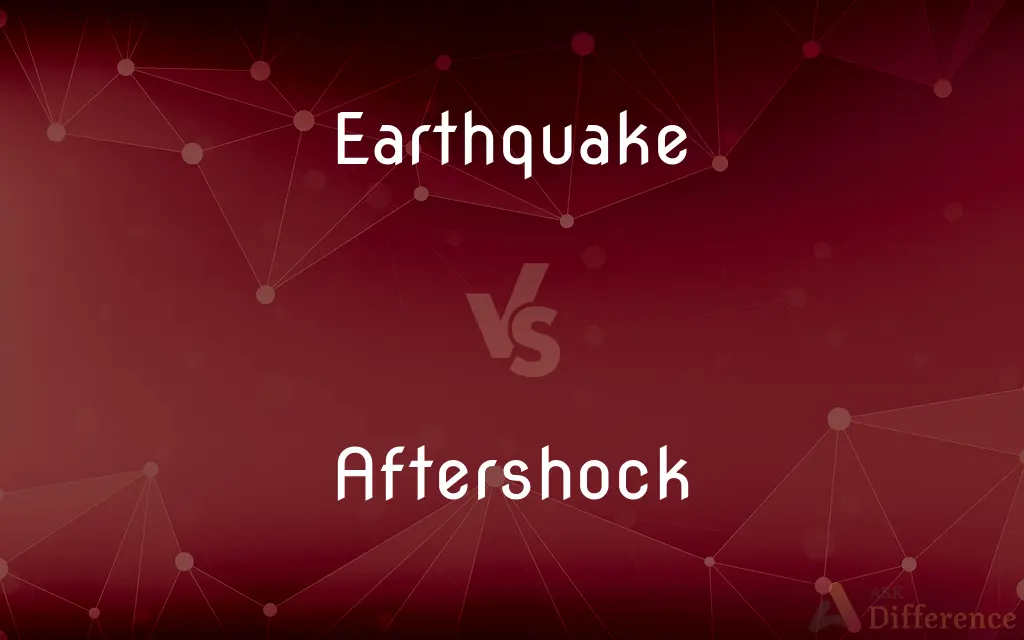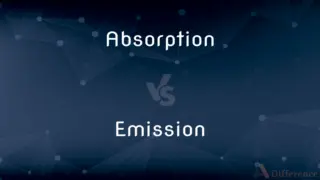Earthquake vs. Aftershock — What's the Difference?

Difference Between Earthquake and Aftershock
ADVERTISEMENT
Compare with Definitions
Earthquake
An earthquake (also known as a quake, tremor or temblor) is the shaking of the surface of the Earth resulting from a sudden release of energy in the Earth's lithosphere that creates seismic waves. Earthquakes can range in size from those that are so weak that they cannot be felt to those violent enough to propel objects and people into the air, and wreak destruction across entire cities.
Aftershock
In seismology, an aftershock is a smaller earthquake that follows a larger earthquake, in the same area of the main shock, caused as the displaced crust adjusts to the effects of the main shock. Large earthquakes can have hundreds to thousands of instrumentally detectable aftershocks, which steadily decrease in magnitude and frequency according to known laws.
Earthquake
A sudden movement of the earth's crust caused by the release of stress accumulated along geologic faults or by volcanic activity. Also called seism, temblor.
Aftershock
A quake of lesser magnitude, usually one of a series, following a large earthquake in the same area.
Earthquake
A shaking of the ground, caused by volcanic activity or movement around geologic faults.
ADVERTISEMENT
Aftershock
A further reaction following the shock of a deeply disturbing occurrence or revelation
"The industry continued to reel from aftershocks of a disastrous [year]" (David Lake).
Earthquake
(planetary geology) Such a quake specifically occurring on the planet Earth, as opposed to other celestial bodies.
Aftershock
An earthquake that follows in the same vicinity as another, usually larger, earthquake (the "mainshock").
Earthquake
(figuratively) A sudden and intense upheaval; a severely disruptive event.
Aftershock
(figuratively) By extension, any result or consequence following a major event.
Earthquake
(intransitive) To undergo an earthquake.
Aftershock
Emotional and physical distress following a traumatic event.
Earthquake
A shaking, trembling, or concussion of the earth, due to subterranean causes, often accompanied by a rumbling noise. The wave of shock sometimes traverses half a hemisphere, destroying cities and many thousand lives; - called also earthdin, earthquave, and earthshock.
Aftershock
A tremor (or one of a series of tremors) occurring after the main shock of an earthquake
Earthquake
Like, or characteristic of, an earthquake; loud; startling.
The earthquake voice of victory.
Earthquake
Shaking and vibration at the surface of the earth resulting from underground movement along a fault plane of from volcanic activity
Earthquake
A disturbance that is extremely disruptive;
Selling the company caused an earthquake among the employees
Share Your Discovery

Previous Comparison
Irrecoverable vs. Unrecoverable
Next Comparison
Absorption vs. Emission














































